Social Work News
Alumna connects social work and law for her career change to child welfare
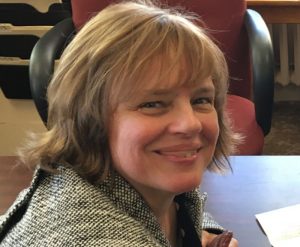
Social worker and attorney Deborah Gardiner ’10 MSW, ’10 JD says she was impressed by the Syracuse University social work students she supervised for family defense field placements at the Frank H. Hiscock Legal Aid Society in Syracuse. “I have seen my students sit patiently with clients while they are experiencing the worst crises of their lives. These moments are fraught with emotion, and the empathy and support provided by the students was invaluable,” says Gardiner. At Hiscock Legal Aid, students learn about systems as they work with individual clients, families, and caseworkers, as well as the court system and the Department of Social Services. “Without social work support, it is often difficult for clients to succeed on their own,” she adds.
Field placements are a critically important part of social work students’ professional development. As they take theories from the classroom and apply them in real-life scenarios, students transform from apprentice to professional. “I have found that at first that students are a bit hesitant to jump in, but they are fascinated with the complexity of the work,” says Gardiner. “Later on, as they begin to engage with clients and get to know cases, they gain confidence and lay the foundation for professional relationships that will influence the rest of their careers.” At Syracuse University, graduate students Falk College’s School of Social Work are required to take two separate internships, each a minimum of 500 hours.
Gardiner herself is a Syracuse University alumna of the dual M.S.W. and J.D. program. Her career in child welfare ties together law and social work, each profession taking its own unique approach. “My social work training allows me to admire and cultivate [my clients’] tremendous resiliency and strength,” she says. When she was a graduate student, she completed two social work field experiences in the area of child welfare, through which she gained insights and discovered new passions. In her placement at the Salvation Army, “I learned to respect my clients and showcase their strengths,” she says. At the Department of Social Services, “I became passionate about alternative and preventative approaches to child welfare.”
Gardiner grew up in a small logging village in New Brunswick, Canada, spending her time in church, in nature, playing hockey, and “always challenging the status quo,” she says. After completing her undergraduate degree and pre-med program, she taught high school sciences in New Jersey until she, her husband, and their seven children moved to Upstate New York.
Gardiner’s life changed dramatically when she had to help her children through a serious family crisis. “I did not know what to do,” she says, recalling the process of navigating Family and Criminal Court systems and the Department of Social Services. “It was a confusing and distressing time, but also a time of tremendous personal growth and empowerment for us all.” She was now responsible for raising her children on her own, working long hours at two medical lab jobs to support them. Today, her children all have professional careers and are serving the public interest.
As her parenting responsibilities decreased, she decided to pursue a new life passion utilizing her experiences to help others in similar circumstances. “I felt my input and words would have much more authority coming from a place of professional education, not just of personal knowledge,” she notes.
She enrolled in Syracuse University’s graduate programs in law and social work in 2007 and continued to work in a medical lab throughout her time as J.D. student and M.S.W. “While I was a bit afraid of making a career change so late in my life—I was in my mid-forties—I was also motivated by the desire to gain insight and knowledge into the systems with which I had interacted during our family’s crisis.”
Gardiner’s determination to better herself through education instilled in her children the value of life-long learning. “Most of my children were able to attend my graduation—that meant the world to me!” She remembers her law professor placing the doctoral hood over her head. Since then, she has been present at several hooding ceremonies for her children. “There is no better feeling than to know that your hard work and passion and values are passed onto your children. They have since picked up the torch and carried it farther than I ever could have.”
“I believe there is more out there for me to do, and I want to continue to help people who are underrepresented or in oppressive situations to find their voices.” Gardiner says she continues to utilize her Syracuse University education, which “helped mold my vision and instill confidence in myself,” throughout her career in child welfare.
For more information about Syracuse University dual-degree programs in Falk College’s School of Social Work and the College of Law, visit the Falk College website.
Mother of four finds her place in Social Work
When 29-year-old Syracuse University student Chevon Janczuk does her homework, she frequently has a few helpers. Her daughter Faith, 9, showed so much interest in her mother’s statistics calculations that Janczuk started teaching her the formulas. “It motivated me to do it the right way because I wanted to be sure I was teaching it to her correctly,” Janczuk says. When she has to give a speech or presentation, she assembles an audience of her four children and practices her delivery in front of them. “My kids are my world,” she says, “and my hope is that one day all of them will go to college. I think I’m setting a good example for them.”
Janczuk is enrolled as a dual major—social work at Falk College and psychology through the College of Arts and Sciences.
Janczuk’s road to college has had a few detours. She dropped out of high school during her sophomore year and had her first child at 19. “I thought for sure I could make it on my own, but I had it all wrong,” she admits. “I got my GED but I didn’t have the education I needed to enter the careers I wanted. I woke up one day and said, ‘Something has to change,’ and started scrolling the internet for social work programs.” She noticed that Syracuse University came up again and again, so she called and explained her circumstances, thinking she’d probably have to take out loans to pay for her education. “I was directed to University College, the home of part-time studies at Syracuse University, and the HEOP program. I had no idea the HEOP program existed.”
She’s referring to the Arthur O. Eve Higher Education Opportunity Program, which provides economically and educationally disadvantaged New York state residents with a broad range of services and funding to help them obtain a college degree. University College has the only HEOP program for part-time students in New York state, so she was able to limit her classes to two or three each semester, minimizing the impact on her family’s schedule. “University College has the most supportive staff I have ever encountered,” she says. “The academic advisors, financial aid advisors, administrative assistants, directors—they walked me through the application process and have explained every step of the way ever since. I owe special thanks to my University College advisor, Jason Scharf, for believing in me even when I doubted myself.
Memorable Moments
In just over two years at Syracuse University, Janczuk has earned an impressive 3.9 GPA and been inducted into Alpha Sigma Lambda, an honor society for post-traditional students. This led to a memorable moment at the HEOP Awards Ceremony last spring, where she received an Academic Excellence Award. She was invited to give the student address, and before her speech, she was introduced to Michael Frasciello, the dean of University College. “Following my speech, Dean Frasciello came up to my family and said to my kids, ‘Your mom’s a rock star!’ That moment will forever be imprinted in my mind,” she says. “It’s amazing how one little comment can impact your life.”
“My dream job involves working within the prison system,” she says. “I want to work with people who have reached the lowest point in their lives and give them a helping hand. People often view those who have been incarcerated as ‘lost causes,’ and that’s what inspires me most. Social workers are taught to look for the strength in each individual and have empathy in even the worst scenarios. I hope to help them lead fulfilling lives as they make their way back into society.”
Karin Ruhlandt, dean of the College of Arts and Sciences, says, “Chevon exemplifies the best of the liberal arts, including her empathetic perspective and commitment to social justice. Her story illustrates how the passion and drive of one student—no matter their path here—can strengthen the entire College and the greater community.”
Mentors and Research Opportunities
Janczuk has found exceptional mentors among the Syracuse University faculty—Michele Vinciquerra, a part-time instructor in social work, in particular. “She is passionate about the material and makes sure her students have a deep understanding of what it means to be in the social work field,” Janczuk says. “I feel social work may have chosen me, but she’s made me love the idea of my future field even more.”
Psychology professor Shannon Sweeney has also been a positive influence. “I took a child psychology course with her and there was a lot of information to learn, but she seemed to make it easy,” Janczuk says. “She involved my children in her course, and my kids had a blast. The other students seemed to really like having them there, too.”
Doctoral student Abby Caselli was Janczuk’s instructor for an introductory course in psychology and later offered her a research assistant position in the social psychology research lab. “Abby has taught me more about psychology than I ever could have imagined, and being in the lab as her assistant has given me a deeper understanding of the inner workings of research,” Janczuk says. “Her guidance, support and the skills she’s taught me will be critical throughout graduate school and my career.”
Sharing Orange Pride
Juggling the needs and schedules of four young children, two stepchildren and a husband who works a demanding job as a correctional officer can be difficult, but the entire family is invested in her success. “Whenever they see the Syracuse ‘S’ they say, ‘That’s mommy’s school!’” she says. That pride goes both ways. “To me, being Orange means every slice of the orange is different, but somehow we are all able to come together and be part of something bigger. It means taking people from all walks of life, with diverse perspectives and goals, and squeezing them into one giant community where everyone is welcomed and accepted.”
Janczuk knows the road to a degree will take a while but insists it will be worth it. “If you want something enough, you find a way to make it work,” she says. “I realize it’s not possible for everyone, and I am grateful that my husband is so supportive of my education. Some days are exhausting and some days I overbook my schedule, but on those days I just try to recognize how far I’ve come and where I’m heading. Then I take a deep breath—and keep on going.”
– from an original story by Mary Beth Horsington
First published as a Syracuse University Story on February 19, 2020 and and updated again on March 11, 2020.
Syracuse University, CNY Care Collaborative, Inc. Launch Care Coordination Certificate Program
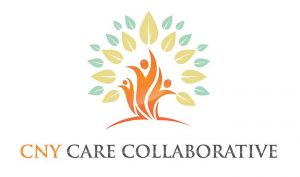
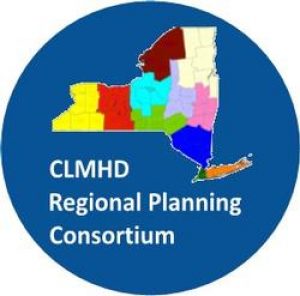
An enhanced training program, funded by the Central New York Care Collaborative (CNYCC) and developed by Falk College’s School of Social Work in partnership with the CNY Regional Planning Consortium (RPC), and other state and local stakeholders, will benefit frontline workers who play a critical role in the state’s efforts to integrate patient care services. Proposed by the CNY RPC in late 2018 and launched in January 2020, the Care Coordination Certificate Program (CCCP) will help workers operate effectively in an increasingly complex service landscape. It is anticipated to have positive statewide and national implications for Medicaid reform.
“The Regional Planning Consortium is where regional collaboration, problem-solving, and systematic improvements for the integration of mental health, addiction treatment services, and physical healthcare occur as it relates to Medicaid Reform,” says Katie Molanare, CNY RPC coordinator and statewide lead for the RPC Workforce Committee.
The RPC is a network of 11 regional boards across New York State, comprised of stakeholders who work closely to guide behavioral health policy in the region, problem solve service delivery challenges, and recommend priorities to the State for reinvestment of Medicaid savings. Workforce development has been a focus area for the CNY RPC since 2018 when the idea for specialized training for care management staff was discussed with CNYCC and Syracuse University. The training was approved by the committees and board in 2019.
Combining data collected from the CNY RPC Workforce Development Committee, other regional care management training pilots, and aspects of the Falk College’s School of Social Work framework, the ten-week training for frontline workers includes topics on Medicaid redesign, strengths-based practice, ethics and boundaries, engagement, and documentation. It will also involve workers’ direct supervisors, who will play a crucial role in helping staff connect the skills they acquire in the CCCP to their daily practices.
“Our collective aim was to make the program sustainable and bring it to scale. As frontline workers develop new competencies, it will be important for their supervisors to understand what they are learning to help them connect their coursework to real-world practice,” says Matthew Spitzmueller, assistant professor and principal investigator of the CCCP. Co-investigators from the School of Social Work include Nancy Mudrick, professor, and Tracy Walker, director of field placement.
The 30 frontline care workers and 10 supervisors participating in the pilot program represent organizations integral to the certificate’s development. They include Children’s Consortium, Circare, Liberty Resources, The Neighborhood Center, Oswego County Opportunities and Oswego Health. All six organizations currently sit on an advisory board for the project, including the CNY RPC, which provided the advisory board with relevant regional data collected from frontline staff and supervisors.
“Improving health and wellness is essential to delivering the best possible care for patients across the community”, says Cathy Homkey, executive director at the Central New York Care Collaborative. “By investing in this type of training for frontline care workers, they will gain the skills and expertise needed to improve care and connect services in a way that is in the best interest of the patient. Offering these types of tools can increase employee satisfaction and lead to a more positive work environment which plays a key role in staff retention.”
A 2014 Medicaid waiver awarded to New York State from the Centers for Medicare and Medicaid Services targeted a 25 percent reduction in avoidable hospitalization over a five-year period. Its triple aim targets improving population health, enhancing the quality of care, and reducing the per capita cost of health care. The waiver addresses critical issues across the state and allows for comprehensive reform through a Delivery System Reform Incentive Payment (DSRIP) program. The DSRIP program promotes community-level collaborations and focuses on system reform.
CNYCC is the lead entity for the DSRIP program in Central New York. Through the New York State DSRIP Program, CNYCC supports service integration, collaboration on patient care, quality improvement, and the shift toward value-based payment. CNYCC’s goal is to empower its partner organizations and their employees with the necessary skills to deliver integrated care management services and provide resources for effective care management principles.
“A workforce responsible for care coordination must be equipped with proper training. A certificate program that targets the complex responsibilities of this workforce will mitigate unanticipated impacts on human service organizations. Syracuse University’s School of Social Work is uniquely well-positioned to develop a certificate program that addresses the full spectrum of opportunities and challenges facing the care coordination workforce,” says Diane Lyden Murphy, dean, Falk College.
Care coordination involves a diverse workforce made up of practitioners who collectively treat the whole person, from primary care providers, mental health and substance use disorder providers, case managers and home healthcare managers to employment specialists, housing providers, residential and respite care workers, among others who often practice independently of each other. While better integration of these services benefits individuals and families receiving them, implementation has produced a number of challenges for frontline workers and the organizations that employ them.
“Behavioral health frontline staff face many challenges with the work that they do. In addition to having no clear job guidelines, frontline staff have an average of 40+ clients with high needs, they must complete multiple assessments within a tight timeframe, and they must understand community resources and government services. This puts an enormous amount of stress on this workforce, especially for those coming into the field with no prior experience,” adds Molanare. “The unique and essential role that frontline staff play is crucial to Medicaid Reform succeeding and paving the way for these high-need clients to receive the care they deserve.”
Essential to these efforts is the role of managed care organizations administering primary and behavioral health services, promoting accountability and quality improvement. While these reforms create new opportunities for cross-sector collaboration and innovation, they also produce unanticipated challenges in the workforce that is charged with executing the State’s goal of integrating care across systems that were traditionally siloed.
“For more than 60 years, Syracuse University’s School of Social Work has trained thousands of bachelor- and master-level social workers who today are direct care providers and program administrators across the systems
that contribute to population health. The School is eager to partner with nonprofit organizations, advocates, and public officials to develop, implement, and evaluate a pilot certificate program that addresses a critical need in the care coordination workforce,” adds Spitzmueller, whose research examines direct service provision to adults with severe and persistent mental illness, the strategies behavioral health workers adopt as they negotiate changing work conditions under Medicaid reform, and the impact of policy reform on socially and economically vulnerable people.
Central New York Care Collaborative is a partnership that connects more than 2,000 healthcare and community-based service providers in six counties across Central New York–Cayuga, Lewis, Madison, Oneida, Onondaga, and Oswego. The primary goal of the collaborative is to serve the population by improving the coordination of healthcare services, enhancing the quality of performance outcomes, and creating an overall better system of care for patients. More information can be found at cnycares.org.
Dean Murphy welcomes Falk students to campus
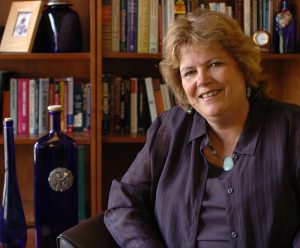 Wednesday, January 15, 2020
Wednesday, January 15, 2020
Dear Falk College Students,
Welcome back to campus, returning Falk students. And welcome to new and transfer students joining us this spring. We are so glad to have you join our Falk family. I hope that your winter break was filled with family, friends, and loved ones, and plenty of time for both restful and exciting activities.
As the Spring 2020 semester begins, I would like to offer you a few reminders and updates:
Falk faculty, staff, and I as your Dean, are here to support each of you on your journey here as students, as people, and as citizens. Our doors are always open to you.
In addition, you were invited to an open house with me and Falk College faculty and staff on January 14. It was great to see many of you there for the first in a series of regularly scheduled events that we will continue this semester and into future semesters. I welcome your feedback for future College activities.
As we face challenges on our campus, and as our students advocate for a better Syracuse University, you have my assurance as Dean that Falk College is fully committed to playing a critical role in these efforts, doing what we can to strengthen and build the campus community we know we can be.
Some of you are actively involved in the Falk College Dean’s Committee on Diversity and Inclusion, established in 2018. We are so grateful for the action and positive change resulting from the efforts of our members, which include faculty, staff, graduate students and undergraduate students from all academic programs in Falk College. There is much work yet to do, and we strongly encourage you to be part of it. Committee meetings are held monthly throughout the academic year. Students interested in being involved in the Committee should contact Professor Chandice Haste-Jackson at cmhaste@syr.edu or the Falk College Dean’s Office at tbattist@syr.edu.
I’d like to remind all students that Falk College Student Services is your dedicated support system. Student Services counselors are here to provide you with private academic advising and help you meet your requirements and goals. In addition, they are your resource for private consultation related to student social and emotional concerns. If you have any concerns throughout your academic career, please contact Student Services or visit 330 Barclay Hall in the Falk Complex.
Particularly for new students, I encourage you review my Fall 2019 welcome message, which contains helpful information about other important resources like Falk Career Services, the Falk Student Lounge, Falk Café, and our computer labs. You’ll also find information about campus resources, such as health and counseling services in the Barnes Center at the Arch, spiritual life through Hendricks Chapel.
To those of you who will be graduating in May, I give you a special word of encouragement to make the most of this semester to maximize your academic and personal growth, and of course, enjoy it! To all our students in Falk College, I wish each of you an excellent Spring 2020 semester.
Go Orange!
Diane Lyden Murphy, M.A., M.S.W., Ph.D.
Dean
Falk College
Falk College offers graduate program scholarships for 2020
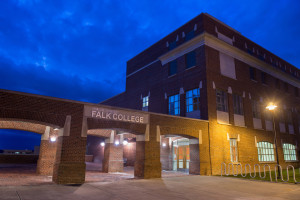 Alumni admitted to one of Falk College eligible master’s program for 2020: All Syracuse University alumni can apply for a scholarship equivalent to 25% of tuition for one of Falk College’s eligible residential master’s degree (listed below). In addition, GRE tests and application fees waived.
Alumni admitted to one of Falk College eligible master’s program for 2020: All Syracuse University alumni can apply for a scholarship equivalent to 25% of tuition for one of Falk College’s eligible residential master’s degree (listed below). In addition, GRE tests and application fees waived.
Scholarship is for residential programs, only.
All students who are full or part-time Syracuse University alumni and do not qualify for the 50% Forever Orange discount are eligible for this scholarship; this includes students already admitted to a Falk master’s program for 2021.
Falk graduate programs include:
- Exercise Science M.S.
- Food Studies M.S.
- Food Studies C.A.S.
- Applied Human Development & Family Science M.A.
- Human Development & Family Science M.S.
- Marriage and Family Therapy M.A.
- Child Therapy C.A.S.
- Trauma Informed Practice C.A.S.
- Nutrition Science M.A., M.S.
- Dietetic Internship C.A.S.
- Integrative and Functional Nutrition C.A.S.
- Public Health MPH
- Addiction Studies C.A.S.
- Global Health C.A.S.
- Sport Venue & Event Management M.S.
Interested students should contact Falk Admissions, submit their application, and must formally matriculate. For more information, please contact the Falk College Office of Admissions at 315.443.5555 or email falk@syr.edu. Award is subject to change.
Social work students explore lead poisoning of children in NYS, Syracuse, at 21st Annual James L. Stone Legislative Policy Forum
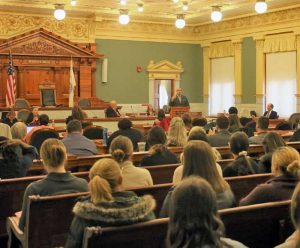 On November 1, students in Syracuse University’s School of Social Work in Falk College explored one of today’s major public health threats that hits very close to home: lead poisoning of children in New York State and specifically, Syracuse. Each year an estimated 1,800 children are found to be lead-poisoned in New York State.
On November 1, students in Syracuse University’s School of Social Work in Falk College explored one of today’s major public health threats that hits very close to home: lead poisoning of children in New York State and specifically, Syracuse. Each year an estimated 1,800 children are found to be lead-poisoned in New York State.
With a focus on implications for public policy and social work practice, the 21st Annual James L. Stone Legislative Policy Forum brought students together with neighborhood, community and political leaders, and other experts to understand what can and needs to be done about the unacceptably large number of children exposed to lead.
Any amount of lead in the body can be harmful, causing life-long cognitive and neurological delays and behavioral problems, among other issues. It is caused by inhaling or ingesting microscopic lead dust that comes from lead paint in older homes, the dirt where children play, water flowing through lead pipes into our homes, and other less pervasive sources.
Students heard from panelists and speakers including state and county officials and others with political, professional and personal experience addressing lead poisoning from many aspects, including:
- social, economic, and political forces giving rise to this problem;
- implications of poisoning for children, families and communities;
- ways social workers, social work services, public health professionals and policy advocates touch families experiencing the lead poisoning of a child;
- efficacy of existing laws, regulations and programs;
- legislation, administrative changes and advocacy civic efforts, and;
- practical steps for remediating and eliminating lead poisoning of children.
Keynote speaker, Hon. Gustavo Rivera, senator, New York State Senate, District 33, Chairman, Committee on Health, presented, “Legislative Action to End Lead Poisoning of Children in New York State.” Panels included:
Making State and Local Change
Moderator: Eric Kingson, professor, Syracuse University School of Social Work
Panelists: Hon. Rachel May, Senator, New York State, District 53, chair, Committee on Aging and chair, Legislative Commission on Rural Resources; Hon. David H. Knapp, Chair, Onondaga County Legislature; Hon. Pamela J. Hunter, assemblywoman, New York State Assembly, District 128; chair, Subcommittee on Women Veterans.
Lead Poisoning of Children in New York and Syracuse: Poverty, Race, & Environmental Injustice
Moderator: Nancy Mudrick, professor, Syracuse University School of Social Work,
Panelists: Sandy Lane, professor of public health and anthropology, Syracuse University, Research Professor Upstate Medical University; Robert Searing, curator of history, Onondaga Historical Association; Hon. Joe Driscoll, 5th District councilor, Syracuse Common Council, founder, Syracuse Lead Prevention Coalition; Kelly J. Mikullitz, Esq., supervising partner, O’Connell and Aronowitz Lead Poisoning and Toxic Exposure Litigation Group and first vice president, Brain Injury Association of New York State.
The Lived Experience: How Lead Poisoning Affects the Lives of Children, Families, and Service Providers
Moderator, Carrie Smith, associate professor, Syracuse University School of Social Work
Panelists: Darlene Medley, parent and member, Families for Lead Freedom Now; Oliviere Sekarore, bridging case manager, Refugee & Immigrant Self-Empowerment (RISE), and; Ellen Morrissey, grandmother, member, Families for Lead Freedom Now, and founder of an online lead poisoning support group.
Public/Private Collaborations to End Lead Poisoning in Syracuse
Moderator, Stefanie R. Pilkay, assistant professor, Syracuse University School of Social Work
Panelists: Peter Dunn, president & CEO Central New York Community Foundation; Stefanie Pasquale, commissioner, Department of Neighborhood and Business Development, City of Syracuse; Debra Lewis, MSW, lead program coordinator, Onondaga County Department of Health; Paul Ciavarri, community development organizer, Community Counsel Project of Legal Services of Central New York.
The day-long event concluded with comments from Professor Kingson and MSW graduate student, Ellan Ryan. Ryan served as the student conference coordinator working closely with event organizers Professors Kingson and Carrie Jefferson Smith, along with director of the School of Social Work and chief diversity and inclusion officer at Syracuse University, Keith Alford.
School of Social Work alumnus, James L. Stone, MSW ’64 created an endowed fund to support this event into the future and was involved in this year’s event. “Once again, the School of Social Work has brought together an amazing and informative panel of experts, law makers and committed community leaders who bring clarity, understanding, and passion to a significant issue that is relevant to social work practice and policy. We are indebted to James Stone for his generosity in endowing this event,” says Diane Lyden Murphy, Dean, Falk College.
Helping seniors age in place: Career paths for social workers in legal settings
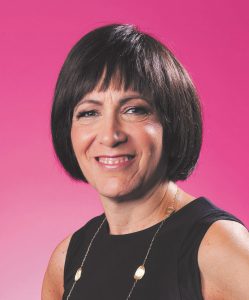
Wendy K. Goidel, Esq., ’84, principal of the Goidel Law Group, founded the Geriatric Care Advocacy Center® to promote awareness about an alarming national epidemic – the shortage of geriatricians, allied health care professionals and other helping/service practitioners trained to support the aging population.
“I am passionate about helping seniors to safely and successfully age in place in the residence of their choice,” says Goidel. Because the traditional elder law model is fragmented and fails to adequately address critical health and care needs, Goidel created an interdisciplinary, holistic approach that integrates the best practices of both geriatric social work and estate and long-term care planning to assist clients and their caregivers and families along the continuum of care.
Recognizing the invaluable benefits of working on a team with geriatric social workers, Goidel introduced her collaborative model to Falk College’s School of Social Work. She is leading and funding an initiative between Goidel Law Group, Falk College, Syracuse University Law School’s Elder and Health Law Clinic, and SUNY Upstate Medical Center to develop a medical-legal-social work partnership model at the academic level. This innovative initiative will inure not only to the benefit of students across the triad of disciplines, but ultimately to the growing demographic of aging Americans. This initiative is particularly synergistic with the goal of the School of Social Work’s Field Office to provide internships in non-traditional settings, such as legal clinics.
Students are not typically exposed to internships in corporate settings. However, according to Goidel, “students and business leaders need to be educated about the unique value and perspective that social workers can provide to the for-profit sector.”
School of Social Work Sponsors “Theater of War”
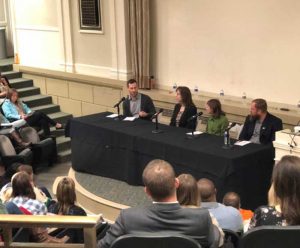 On Oct. 17, members of the Syracuse-area professional community gathered on Syracuse University’s South Campus for a full day of veteran cultural competency training followed by “Theater of War,” an innovative public health project designed to encourage thought and discussion around the impact of war and its challenges faced by military service members, veterans, their caregivers and their families.
On Oct. 17, members of the Syracuse-area professional community gathered on Syracuse University’s South Campus for a full day of veteran cultural competency training followed by “Theater of War,” an innovative public health project designed to encourage thought and discussion around the impact of war and its challenges faced by military service members, veterans, their caregivers and their families.
Sponsored by the Falk College School of Social Work, “Theater of War” attendees learned best practices for delivering quality, culturally competent care and education for veterans and military families as well as how to acquire and implement the strategies for optimizing their performance and growth. Upon program completion, each participant earned 7.25 credits in evidence-based veteran cultural competence training.
“Trainings like this go a long way in creating more military-friendly communities and workplaces,” says Ken Marfilius, a United States Air Force veteran and professor in the Falk College’s School of Social Work. “The University’s readiness to provide this type of impact program speaks to the institution’s long-standing commitment to the military community and helps those who serve and employ veterans to bridge the military-civilian divide.”
“I know firsthand the power of experiential education,” said Tracy Walker, director of field instruction in the School of Social Work. “This program did a tremendous job engaging learners intellectually, emotionally, socially and physically. It caused me to put myself in a soldier’s shoes in a way that I have never done before and it resulted in my deepening respect and compassion for our soldiers.”
Read more about the event at Syracuse University News
Dean Murphy welcomes Falk students to campus
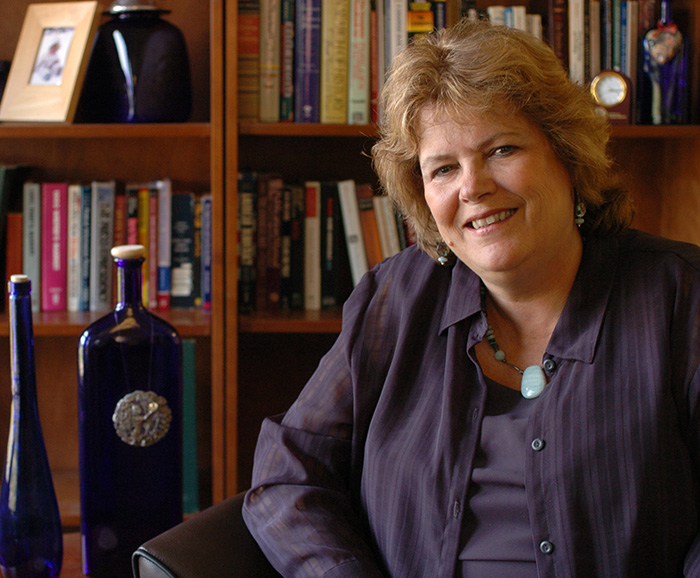
Dear Falk Students,
Welcome back to campus, returning Falk students! Let’s give a very special welcome to the Class of 2023, as well as new transfer and graduate students. We are thrilled to have you join us. I hope you each enjoyed an adventurous and restful summer.
What a special time to be at Syracuse! There are plenty of exciting events planned on campus this semester, including a very special Orange Central homecoming and reunion on September 12-15, which will commemorate 150 years of Syracuse University history.
As we jump right into the Fall 2019 semester, I would like to remind you of some important information that will help you as you begin—or continue—your studies here at Falk College.
Falk College Student Services is your support system. Student Services counselors are here to provide you with private academic advising and help you meet your requirements and goals. In addition, they are your resource for private consultation related to student social and emotional concerns. If you have any concerns throughout your academic career, please contact Student Services or visit Suite 330 Barclay Hall in the Falk Complex.
I encourage you to connect with the staff at Falk Career Services, who can help you prepare for life after college through career exploration, internship and job searching, professional networking, and more. They are also located in Suite 330 Barclay Hall, or you can search for opportunities through Handshake, the University’s job search and professional events portal.
In addition, you can connect to spiritual life on campus at Hendricks Chapel, as well as health and counseling services now open in the Barnes Center at the Arch. Visit news.syr.edu to keep up with Schine Student Center renovations and other important University updates.
The Student Lounge, located in Falk 216, is available to you anytime the Falk Complex is open. The lounge has a microwave, refrigerator, and vending machines for student use. Across the hall is the Falk Café on 2, open 8:00 a.m. to 3:00 p.m., Monday through Friday. In addition to smoothies, make-your-own salads, and wraps, the Café has a grill for sandwiches, hamburgers, veggie burgers, and many other items. Just down the hall is Falk 229, the quiet student lounge.
There are several computer labs in the Falk Complex. Falk 113 is a PC lab, Falk 253 is a Mac lab. Both are available to students at any time. Falk 400 and 407 are PC labs that are also used as teaching classrooms. When class is not in session, they are open for student use. You may check their schedule of availability using the Orange Events website. You may also use the quick-print stations in Falk 216 and 229 for printing and email. These stations log out automatically after 15 minutes of use.
The Student Involvement Fair will be held Wednesday, September 4 on the Quad from 11:30 a.m. to 3:00 p.m. (Rain location: Goldstein Auditorium in Schine Student Center). With more than 300 student organizations on campus, you are sure to find something that interests you. I highly encourage each of you to attend.
You can discover activities and events on campus by visiting the University’s new community calendar. You can also follow Falk College and other campus groups on social media.
Syracuse University email is the primary communication method at the University. Your professors and University offices will contact you with important information using your Syracuse University email address (ending in “@syr.edu”), not your personal email address. So, it is essential to read your University email at least once every day.
While I hope this list is helpful, there are many other resources available to you at Syracuse University. Please visit syracuse.edu/life/students to review a more inclusive listing of valuable student resources to enhance your experience at Syracuse.
With that, I wish you the very best for the upcoming Fall 2019 semester. Once again, welcome to Falk College and the Syracuse University family.
Go Orange!
Diane Lyden Murphy, M.A., M.S.W., Ph.D.
Dean
Falk College
Falk College welcomes new faculty and staff
Syracuse University’s Falk College is pleased to announce the appointment of new staff members who have joined Falk College in the past academic year, including Karen Goebel, office coordinator in the School of Social Work; Meredith Groman, administrative assistant and Jamie Rhoades, assistant teacher in the Bernice M. Wright Child Development Laboratory School; Kevin McNeill, internship placement coordinator in the Department of Sport Management; Megan Myers, assistant director of development in the Office of Advancement; Kathleen Nasto, office coordinator in the Department of Human Development and Family Science; Jessica Pitcher, career advisor and David Sly, associate director of career services in the Office of Student Services; Laura Sauta, administrative assistant and Megan Snow, internship placement coordinator in the Department of Public Health, and; Zachary Schuster, assistant director of undergraduate admissions and recruiting in the Office of Admissions.
It also welcomes five new faculty members, Justin Ehrlich, Chandice Haste-Jackson, Jeremy Losak, Stefanie Pilkay, and Xiafei Wang.
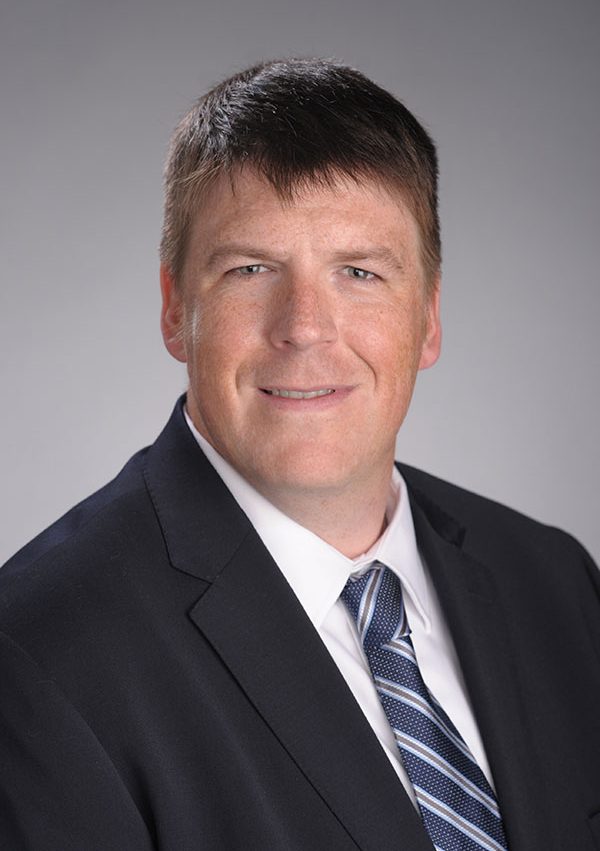
Justin Ehrlich
Assistant Professor, Department of Sport Management
Justin Ehrlich joins Syracuse University’s Falk College Department of Sport Management as a tenure-track assistant professor in Fall 2019, where he will teach in the area of sport analytics.
Prior to joining Syracuse University, Ehrlich taught as an associate professor at Western Illinois University, School of Computer Sciences, since 2010 in Macomb, IL. There, he specialized in data visualization, visual analytics, sport data computation and analysis, machine learning, computer graphics, virtual reality, server-side development, languages and technology. He taught several courses such as Topics of Computer Science: Data Visualization, Operating Systems, Advanced Computer Graphics, Server-Side Development, and served as chair of the Council for Instructional Technology and chair of the IT Governance Executive Committee. He previously worked as an AViSSS (Animated Visual Supports for Social Skills) lead software developer for the University of Kansas and has held roles such as ASP.net developer for Nomise Systems and lead developer for HSSportsTV.net, both in Wichita, KS.
Ehrlich has published several papers in sport data visualization and analysis in Public Choice, Mathematical Social Sciences, Games, and the Journal of Quantitative Analysis in Sport. He has conducted many talks and live demonstrations on sport data computation, visualization, and analysis that incorporate use of Tableau (with VizQL), R, Python, and D3.
Ehrlich’s research has received support from the U.S. Department of Education, the U3E, and from Falk College. He was awarded the Moore Best Ph.D. Dissertation Award from the University of Kansas School of Engineering, the Provost’s Award for Academic Excellence in Teaching with Technology from Western Illinois University, and several awards from WIU’s College of Business and Technology.
Ehrlich earned a Ph.D. in computer science from the University of Kansas in 2010. His dissertation was titled, “The Effect of Desktop Illumination Realism on Presence and Generalization in a Virtual Learning Environment.” He also holds a computer science M.S. earned in 2007 from Wichita State University, and an accounting and business administration B.B.A., earned in 2004 from Friends University in Wichita, KS.
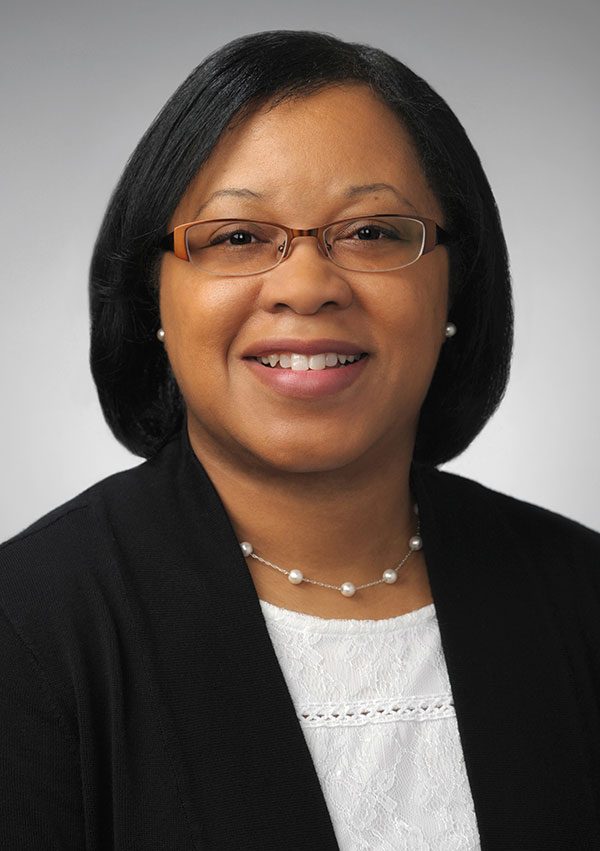
Chandice Haste–Jackson
Associate Teaching Professor, Department of Human Development and Family Science
Chandice Haste–Jackson is an associate teaching professor in the Department of Human Development and Family Science beginning Fall 2019.
In addition to working as internship coordinator in Falk College since 2016, Haste-Jackson has served as adjunct faculty in the Department of Human Development and Family Science since 2005, teaching courses such as Intimate Relationships and Gender Roles, Family Development, and Diversity, Equity and Inclusion. She has also taught as adjunct faculty for Onondaga Community College and the American Public University/American Military University System Department of Human Development and Family Science. She previously served in Syracuse University’s School of Education as director of the Liberty Partnerships Program and has held positions at the Chadwick Residence, Inc., the Dunbar Association, and Syracuse Model Neighborhood Facility, Inc.
Haste-Jackson serves on the School Counselor Advisory Board for the Syracuse City School District and is a consultant for My Brother’s Keeper Syracuse initiative founded by President Obama.
Haste-Jackson has presented for the Society for Research on Adolescence in San Francisco, CA and the National Council on Family Relations in Orlando, FL. She has given presentations for the U.S. Department of Education Office of Innovation and Improvement in Washington, DC, the New York State Education Department Empire State Youth Summit in Albany, NY, Ethiraj College and Women’s Christian College in Chennai, India, as well as for the National Diversity Council’s Upstate New York College Diversity Summit in Syracuse, NY, among others.
Haste-Jackson’s work in urban youth development, vulnerable families, cross-cultural family dynamics, and diversity education has received support from the United States Department of Housing and Urban Development, New York State Office of Temporary Disability Assistance, New York State Legislature-Joan Christensen, Onondaga County Department of Long-Term Care and Aging Services, Onondaga County Youth Bureau, Onondaga County Department of Health, Onondaga County Department of Social Services, United Way of Central New York, and Syracuse University.
Haste-Jackson earned a Ph.D. in child and family studies from Syracuse University in 2013. Her dissertation was titled, “Strengths and Risk Factors for Romantic Relationships: Perspectives of African American Women.” She also holds a M.S. in behavioral sciences with a concentration in psychology, earned from Cameron University in 1999, and a B.A. in cultural anthropology, earned from Syracuse University in 1996.
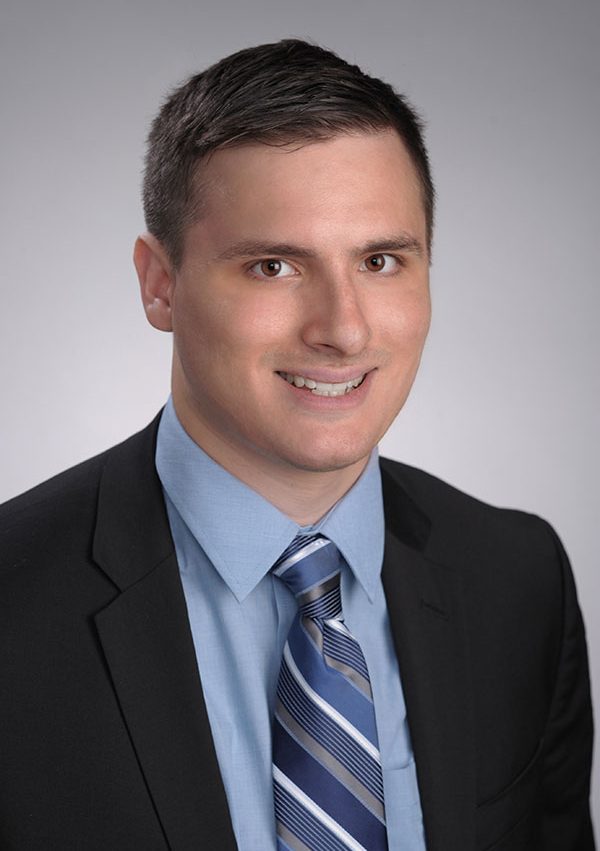
Jeremy Losak
Assistant Professor, Department of Sport Management
Jeremy Losak joins Syracuse University’s Falk College Department of Sport Management as a tenure-track assistant professor in Fall 2019, where he will teach in the areas of sport management and sport analytics.
Prior to joining Syracuse University, Losak was a graduate assistant in the John E. Walker Department of Economics at Clemson University. His teaching experience includes positions as teaching assistant for Sport Economics, teaching assistant and later head teaching assistant for Undergraduate Principles of Microeconomics and Principles of Macroeconomics, and teaching assistant for Managerial Economics. In the sports industry, he was a baseball analytics consultant for Wasserman Media Group, marketing analytics consultant for The Madison Square Garden Company, and analytics intern for the Auburn Doubledays.
Losak’s research focus is in sports economics, particularly sport labor markets and betting markets. He is published in Managerial Finance and in the Academy of Economics and Finance Journal. He has given several presentations at venues such as the 2019 Eastern Economic Association Conference in New York, NY; the 2018 Southern Economic Association in Washington, DC; the 2018 Missouri Valley Economic Association’s Sports Economics Session in Memphis, TN, and; the Center for Research in Sports Administration’s Sports, Data, and Journalism Conference at the University of Zurich in Switzerland.
Losak is the recipient of a Junior Researcher Award for the 2018 Sports, Data, and Journalism Conference at the University of Zurich and the Distinguished Student Paper Award at the 2018 Missouri Valley Economic Association Conference. He is also the recipient of travel grants from the Institute for Humane Studies Hayek Fund and Clemson Graduate Travel Grant Service. He was named a 2016 Falk College Class Marshal and a Falk College Scholar while at Syracuse University.
Losak earned a Ph.D. in economics from Clemson University in 2019 where he was a Koch Fellow in the John E. Walker Department of Economics. He also earned a B.S. in sport management from Syracuse University’s Falk College in 2016.
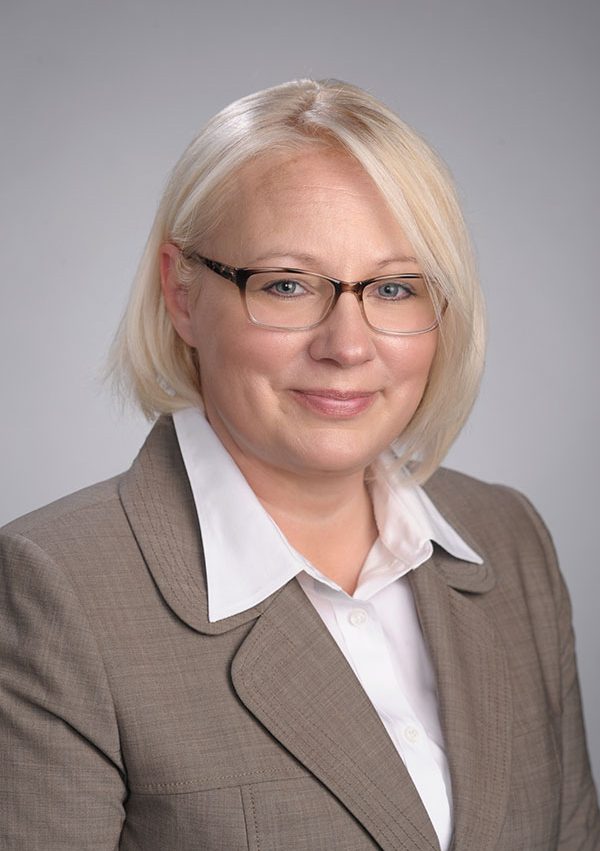
Stefanie Pilkay
Assistant Professor, School of Social Work
Stefanie Pilkay joins Syracuse University’s Falk College School of Social Work as a tenure-track assistant professor in Fall 2019.
Before joining Syracuse University, Pilkay served as an adjunct lecturer at both Yeshiva University’s Wurzweiler School of Social Work in New York, NY since 2018 and the University of Tennessee, College of Social Work in Knoxville, TN since 2015, teaching research methodology, trauma theory and practice, lifespan and neurophysiological development, and human behavior in the social environment. She was also a postdoctoral fellow at the Emory University School of Medicine, Department of Gynecology and Obstetrics in Atlanta, GA since 2017. She has served as a court-appointed special advocate for Anderson County Tennessee Juvenile Court. In 2014, she was a forensic social worker for the Community Law Office, Knox County Public Defender’s Office. Specific to her research experience, Pilkay has served since 2018 as an early investigator trainee on “Developmental Origins of Health and Disease,” an international cross-discipline research study with collaborations between Canada and the U.S.
Pilkay’s research interests include trauma, early-life adversity, inter-generational transmission of adversity, adversity and trauma mechanisms for risk and resilience in human development. She is published in the Journal of Social Work Education, the Journal of Social Service Research, and has given several peer-reviewed presentations, most recently at the 64th Annual Program Meeting of the Council on Social Work Education in Orlando, FL, Connecting for Children’s Justice Conference in Murfreesboro, TN, the International Congress on Child Abuse and Neglect in Prague, Czech Republic, and the 73rd Annual Scientific Meeting of the Society of Biological Psychiatry in New York, NY. Pilkay’s work has been supported by the National Institute of Health/National Institute on Minority Health and Health Disparities and the University of Tennessee Health and Science Center.
Pilkay earned a Ph.D. in social work with a minor in graduate statistics from the University of Tennessee, Knoxville in 2017. She holds a M.S. in social work, an evidence-based interpersonal practice major with trauma treatment graduate certification, and a B.S. in social work with majors in honor’s social work and psychology, earned in 2014 and 2013, respectively, from the University of Tennessee, Knoxville.
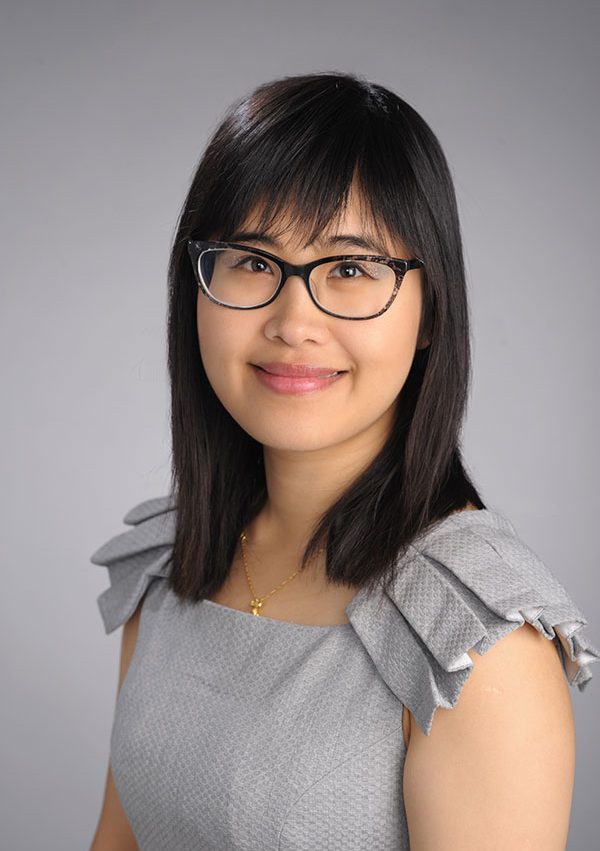
Xiafei Wang
Assistant Professor, School of Social Work
Xiafei Wang joins Syracuse University’s Falk College School of Social Work as a tenure-track assistant professor in Fall 2019.
Prior to joining Syracuse University, Wang served as a research assistant on “Evaluation of Chinese National Working Committee on Children and Women & the United Nations Children’s Fund Joint Child Friendly Spaces Project in China,” funded by the United Nations Children’s Fund: China since 2017, and on “Improving Child and Adolescent Mental Health and Health Outcomes: Integrative Family and Systems Treatment (I-Fast) Integrated Episode of Care Model” since 2014, funded by the Ohio Department of Mental Health & Addiction Services and Department of Developmental Disability.
Wang has published peer-reviewed articles in Social Work Research, Journal of Social Service Research, The Journal of Health Disparities Research and Practice, Children and Youth Services Review, Journal of Developmental Behavioral Pediatrics, PsyCh Journal, Community Mental Health Journal, Child Psychiatry and Human Development, Child Abuse & Neglect, and Social Work in Mental Health, as well as multiple book chapters.
Wang recently presented at the 32nd Annual San Diego International Conference on Child and Family Maltreatment in San Diego, CA, the Council of Social Work Education 64th Annual Program Meeting in Orlando, FL, National Association of County and City Health Officials 2018 Annual Meeting in New Orleans, LA, the Joint World Conference on Social Work, Education and Social Development 2018 in Dublin, Ireland, ResilienceCon 2018 in Nashville, TN, and the Society for Social Work and Research 22nd Annual Conference in Washington, D.C., among other presentations.
Wang’s work has received support from the Society for the Psychological Study of Social Issues, Big Cities Health Coalition, Central Benefits Health Care Foundation, and the Ohio State University College of Social Work.
Wang earned a Ph.D. from The Ohio State University in 2019. Her dissertation was titled, “Breaking the Cycle of Intergenerational Trauma: A Mixed-Methods Study.” There, she also earned her M.S.W. in 2015. She earned a M.A. in social work and social policy from Peking University in 2012 and a L.L.M. from the Peking University Law School & The Raoul Wallenberg Institute of Human Rights and Humanitarian Law in Beijing, China and Lund, Sweden in 2011, where she was named valedictorian. She also earned a B.A. in social work from Peking University in 2009.
Page 16 of 31
